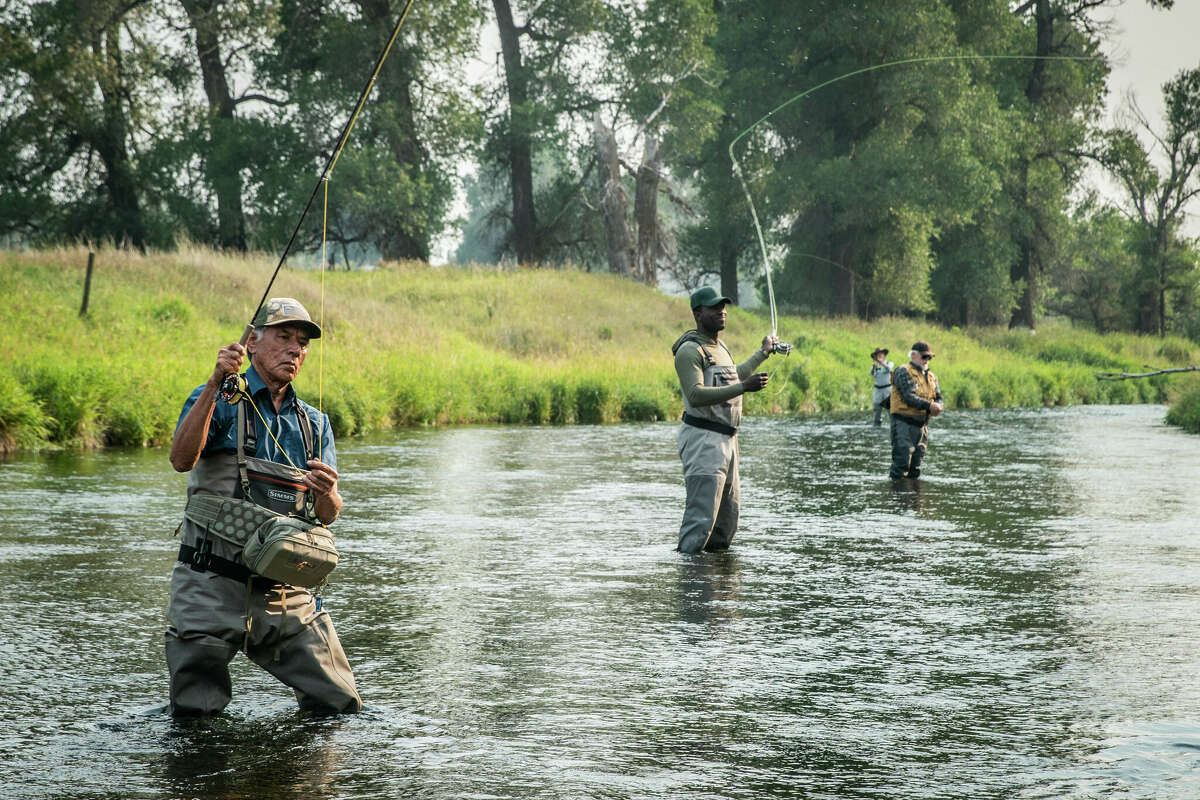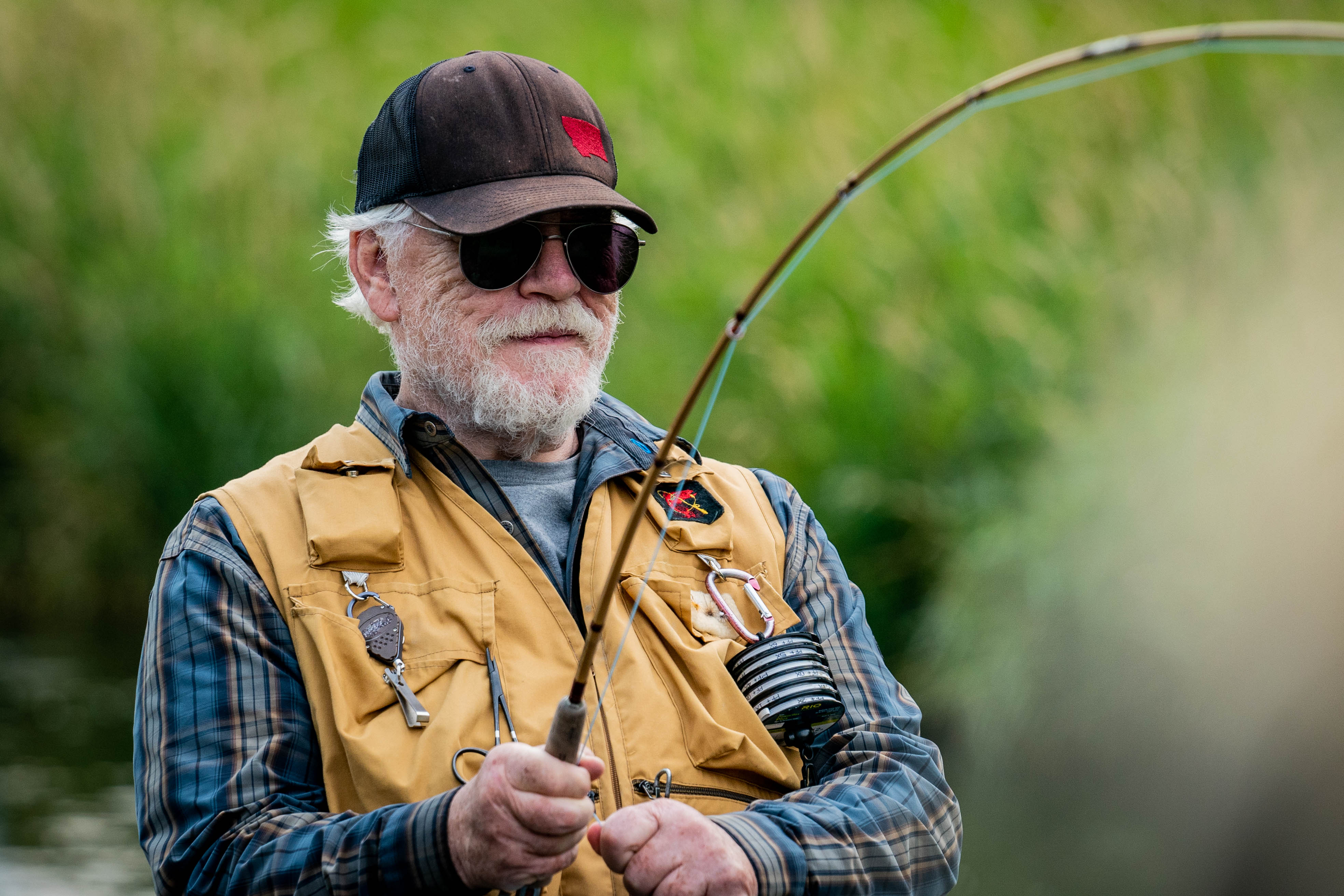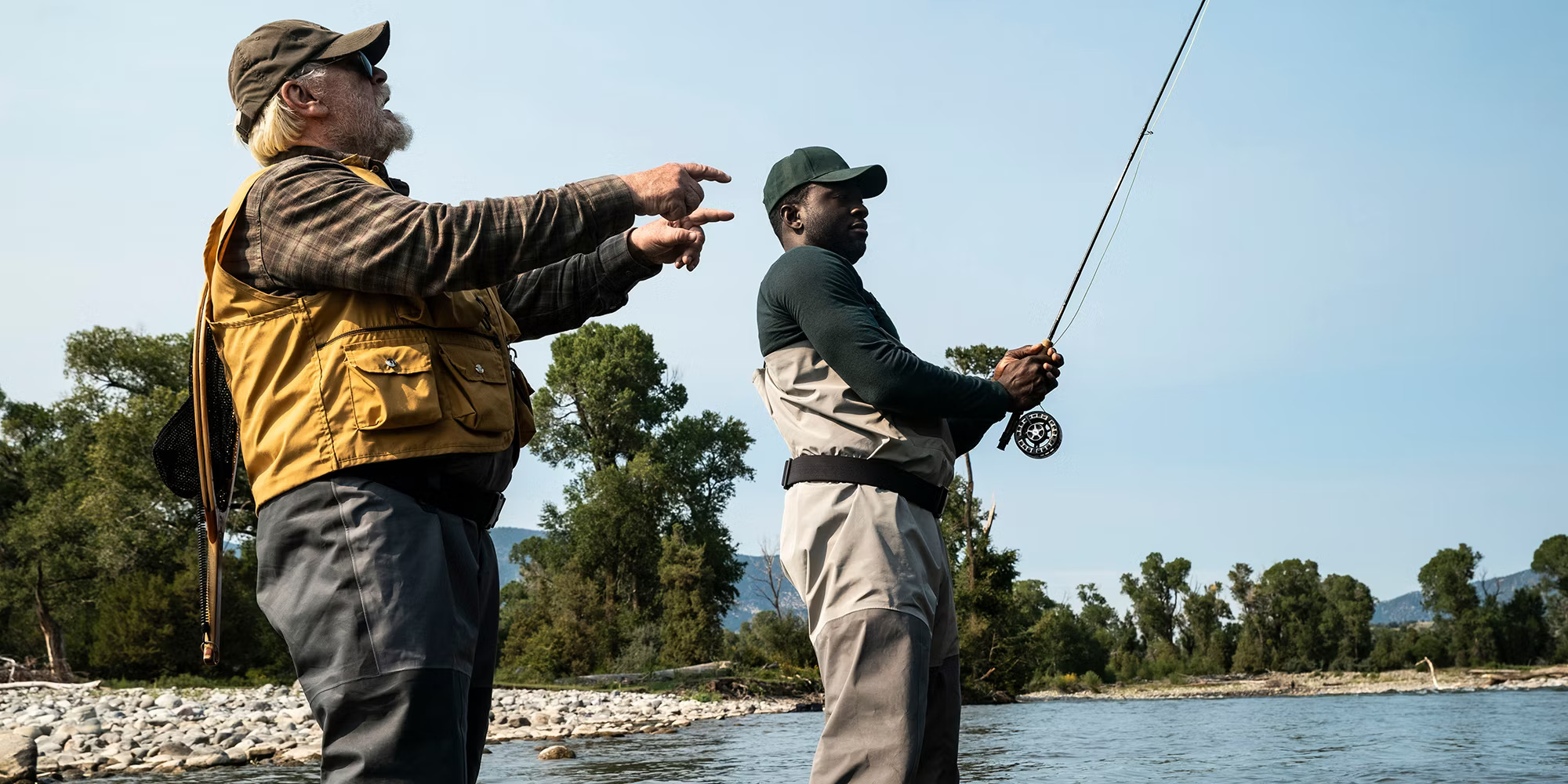‘Mending the Line’ is a drama film that revolves around John Colter, a US Marine who was wounded in Afghanistan and is sent to a V.A. facility in Montana to recover. With the horrors of war still haunting him, both mentally and physically, he befriends an old Vietnam War veteran by the name of Ike. Ike introduces Colter to the sport of fly fishing as a way of focusing John’s mind on something other than the battlefield and his need to return to it.
Directed by Joshua Caldwell, the film captures the trauma that soldiers face and how it affects them in their life outside of the military with careful consideration. The brilliant performance by Brian Cox, Perry Mattfeld, and Sinqua Walls adds to the story’s emotional aspects as well. But is there any truth behind this tale of fly-fishing? Let’s dive in and find out!
A Writer’s Grief Transformed in Mending the Line
‘Mending the Line’ is not based on a true story. However, Stephen Camilo, who penned the screenplay, did take inspiration from his personal life. In an interview with Flylords Magazine, Camilo revealed that his father was in the military during the Vietnam War. After he passed away due to cancer, Camilo, who was writing for various fly fishing magazines at the time, turned to the sport himself to cope with his father’s demise.

“When he passed in 2013, the meditative nature of fly fishing really helped me deal with my grief and I had the idea to write a story that combined the destructive elements of war with the healing aspects of nature. It wasn’t until later that I found out about organizations like Warriors & Quiet Waters and others that were actually doing this in real life – using fly fishing to heal,” the writer said.
Fly fishing is a popular angling method that uses an artificial fly to catch fish like trout, salmon, pike, bass, and grayling. It uses specialized equipment and a casting method than other fishing techniques. Fly fishing is one of the central themes of ‘Mending the Line,’ and is therefore depicted quite accurately, with all of the actors who engage in the sport on screen having trained for it beforehand. “I wasn’t worried about the quality of the performances from the actors,” director Joshua Caldwell told Flylords Magazine.
He added, “When you hire people like Brian, Sinqua, Perry, Patricia, and Wes, you know they’re going to bring it performance-wise, and they did. But I also knew we were not going to be able to use casting doubles nor did we want to deal with the hassle of a CGI fly line – they were going to need to learn to cast.” All of the cast members only had a few days to train before filming started and were taught to fly fish by Simon Gawesworth, the Education & Engagement Manager for Far Bank, a corporation built around fly fishing that teaches people to fly fish, as well as sells the related sporting equipment.
Far Bank also provided the cast of ‘Mending the Line’ with their fishing rods and other equipment. Simon has fished in World Championships for England and was even the Captain of the England team for the World Fly Fishing Championship in 2003. But while fly fishing is an important part of the story, ‘Mending the Line’ is ultimately about the traumas of war and the various ways in which people rehabilitate themselves after coming back home.
Colter’s constant nightmares and sleepless nights in the film and his need to go back to Afghanistan because he finds it difficult to adjust to the peaceful environment of Montana all point to his deteriorating mental health. When asked about how he prepared for such a heavy-handed film in an interview with MSNBC, actor Brian Cox reminisced about his youth in Britain during the Vietnam War and how he channeled it into his character.

“I remember the Vietnam War. I didn’t serve in it because I’m British, and we didn’t fight in the Vietnam War. But I remember the effect it was having on a lot of my American students, fellow American students at the time who were really suffering from the fact that they were probably going to go back and probably going to have to go to war. And they were very resistant – we didn’t have any draft dodgers but we had people who found it really tough,” the actor said.
Though not a true story, ‘Mending the Line’ grounds itself in reality through its portrayal of veterans and their pain, which was taken directly from the personal experiences of those involved in the film’s production. A film about healing, ‘Mending the Line’ will help viewers understand and process what those who have fought in battle have gone through, as well as relate to the people who were left behind to deal with the loss of somebody who, unfortunately, didn’t make it back home.
Read More: Best War Movies on Netflix


You must be logged in to post a comment.